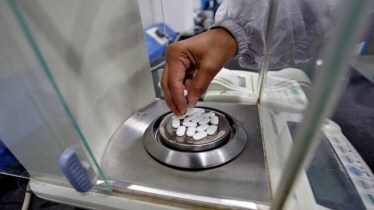The threat by US President Donald Trump to impose “25% or higher” import duties on pharmaceutical products for countries across the board is unlikely to have a major adverse impact on India, as the country is the lowest cost supplier with nearly unbeatable competitive advantage, industry sources and analysts said. The optimism is despite the fact that the US is the largest overseas market for India’s branded generics, and accounts for a more than a fourth of the country’s exports of medicines and vaccines.
While the industry expects to retain its share of the US market for pharmaceutical formulations, even if tariffs go up, trade experts discounted the chances of high tariffs to be imposed on India, given Trump’s policy of reciprocal tariffs. India does not keep high tariffs on drugs. Effective duties on India pharma exports to the US is a minimal 0.1%, while imports from the US attract 10 % duty.
India’s exports of pharmaceuticals to the US were $ 8 billion in 2023-24 while imports stood at just $ 0.4 billion.
India is the lowest supplier of pharma products to the US, so even if the import duties go up to 25%, Indian drugs will remain competitive in that market, president of Indian Drug Manufacturers’ Association Viranchi Shah said. Even if the reciprocal tariffs come, India will not face any major challenge. Most of the drugs consumed in India are domestically produced generic medicines. Only some patented drugs for critical illnesses are imported, and that too at at zero duty. Since on some other imports, duties are as low as 5-7.5%, reciprocal duties, if imposed on a product-to-product basis might not hurt India much, he reasoned.
Chairman of Pharmaceutical Export Promotion Council Namit Joshi said the situation is being assessed but any major threat to generics exports is not expected. “The competitiveness of Indian exports will ensure the impact of any duty hikes will be low. The recent lowering of duties by India on imports of speciality drugs from the US would also keep reciprocal tariffs well below 25%,” he added.
While the industry associations see little impact of Trump’s announcement of higher duties on pharma products, the share prices of major pharma exporters to US fell as much as 2% in the stock markets on Wednesday.
“The Indian pharmaceutical industry supplies nearly 47% of the generic medicines for the American patients. The proposal regarding reciprocal tariffs is currently under talks and is being examined. We are confident that continued dialogue among stakeholders will help address the subject,” secretary general of Indian Pharmaceutical Alliance (IPA) Sudarshan Jain said.
IPA primarily represents companies specializing in producing generic drugs, which are lower-cost versions of branded medications. It is an association of 23 research-based pharma companies including Sun Pharma, Lupin. Cipla, Dr Reddy’s and Mankind. They contribute more than 80% of the country’s exports of drugs and pharmaceuticals and service over 64 percent of the domestic market.
The US imported 39% of overall pharma shipments from India last fiscal. India’s pharma exports in FY 24 stood at $27.84 billion. In terms of volume, Indian drugs comprise 20% of the global generic drug exports. India’s drugs and pharmaceuticals exports rose 9.7% in 2023-24, even as the total exports fell by 3%.
